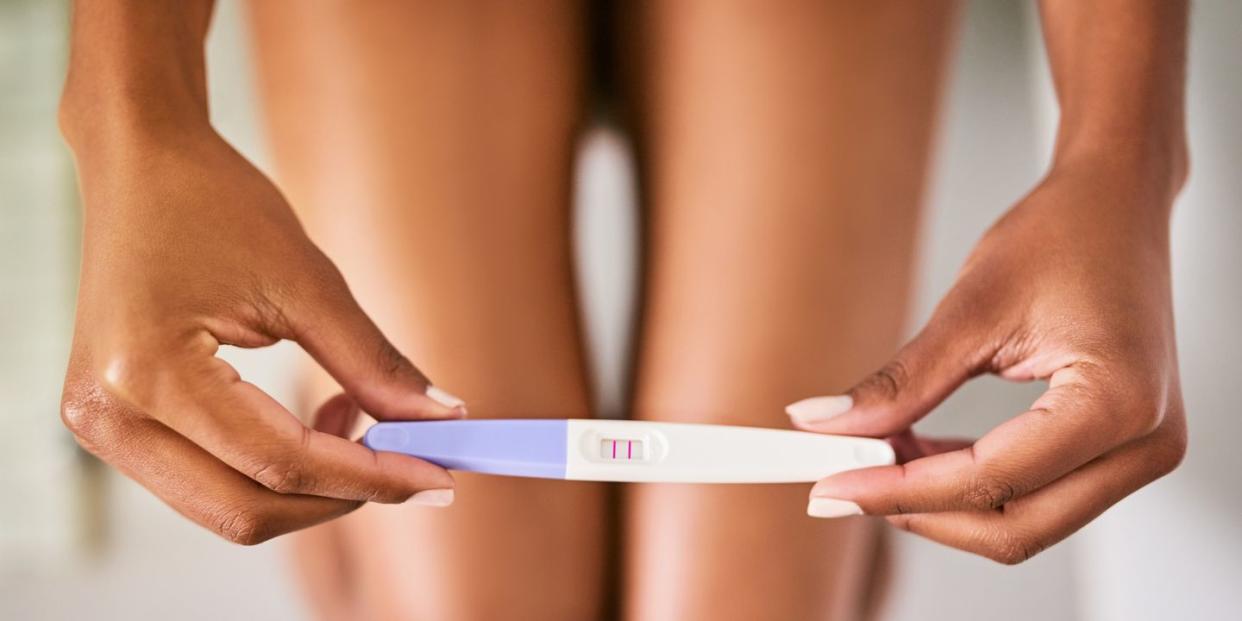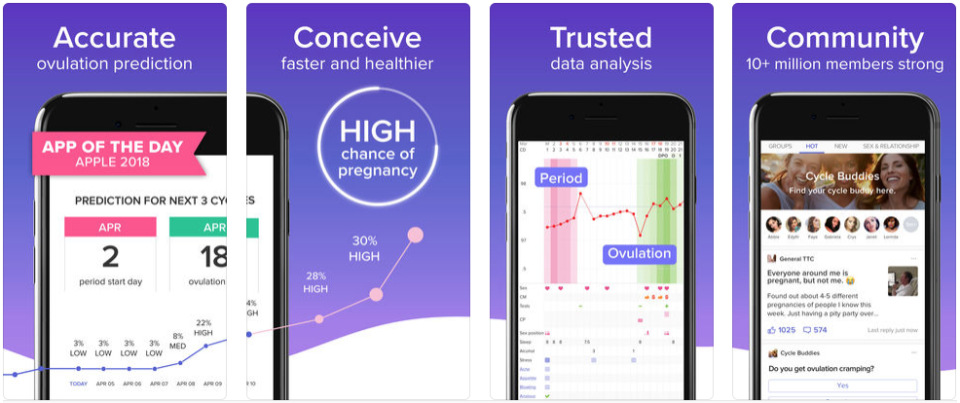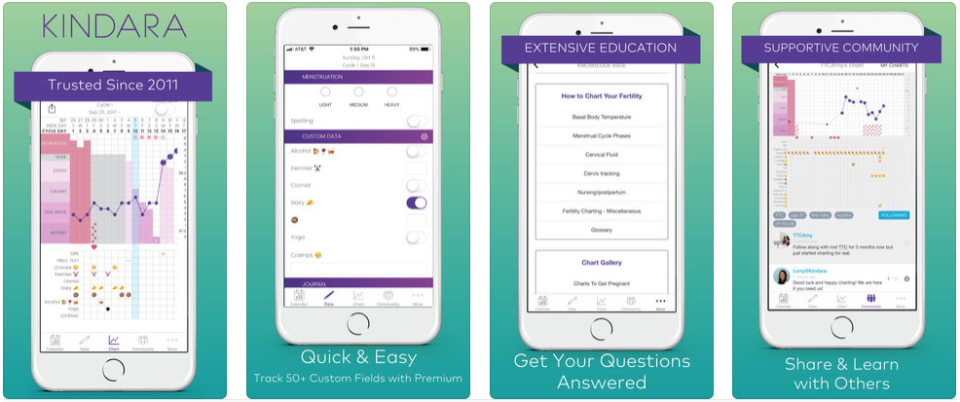The 8 Best At-Home Fertility Tests and Apps

At-home fertility tests are a booming market and there's never been more options available to couples trying to conceive. But where do you start? How do you know which ones are worth your time and money?
Some of the most popular resources for checking your fertility at home include ovulation tests, fertility apps, and sperm analysis kits.
Keep in mind, going to a specialized reproductive endocrinologist is always going to provide better insight into your fertility than an at-home test. "Most fertility clinics provide a comprehensive workup for couples at a relatively affordable cost," says Dr. Angie Beltsos, from Vios Fertility Institute, whose clinic provides a Wellness Check Up that costs $99.
During the check-up, blood is drawn from the patient to check hormone levels of E2, AMH, and FSH as well as an ultrasound to look at follicles. Dr. Elena Trukhacheva of the Reproductive Medicine Institute in Chicago, says her clinic also offers a $90 report that includes hormone info, follicle count, and semen analysis. Dr. Trukhacheva adds that the low price of her in-clinic assessment package was developed to compete with the at-home tests, so it's def worth looking into one of these at a clinic near you.
That said, if for whatever reason, you can't make it into a specialist's office or you're just in the early stages of researching your fertility, here's some info to help you navigate the world of at-home tests.
According to the American Pregnancy Association, ovulation kits track luteinizing hormone to gauge when the most fertile time of your cycle is. The Luteinizing hormone surges 24-48 hours prior to ovulation, so that's when you can plan around having sex.
Dr. Trukhacheva explains that ovulation usually occurs 14 days before women get their period, which is great to know if you have a regular 28-day cycle. However, for the many women who have an irregular cycle, ovulation kits are especially helpful.
Note: false positives and false negatives are still possible with home ovulation tests. "Patients with polycystic ovarian syndrome not only have irregular menstrual cycles, but also have frequently elevated LH levels even without ovulation," says Dr. Trukhacheva.
The Classic: Clearblue Fertility Monitor with Touch Screen
Dr. Beltsos recommends this one for women looking for an at-home digital kit as it provides clear results. "It's great and eas[ier] to read than the cheaper sticks." If scrutinizing the color on a strip isn't up your alley and you want clear answers, go with digital. Whereas other ovulation kits track just Lutenizing hormone, this monitor (which requires the Clearblue Advanced Digital Ovulation tests to work with it sold separately) also tracks estrogen.
The Hi-Tech Option: Clearblue Advanced Digital Ovulation
Dr. Trukhacheva explains that digital ovulation systems are usually more expensive than old-school strip-style tests, and also detect elevated estrogen (another hormone helpful to track for fertility purposes).
The Most Affordable: First Response Ovulation Kit
If you're looking for an economical test, this one includes seven ovulation tests and one pregnancy test for $17. You'll have to visually inspect the viewing screen to determine if you're ovulating or not (which isn't as clear as some digital tests), but it should work just as well.
Most fertility apps rely on the concept that the peak fertility window is about 14 days before the next period, Dr. Trukhacheva says. So, with this in mind, these apps would work better for women with regular period cycles than irregular cycles.
However, fertility apps may also serve an important emotional function, as Dr. Trukhacheva points out, by providing educational info, emotional support, and a sense of control throughout the process of trying to conceive. Talking with other women undergoing the same process may also foster a sense of community.
FYI, the more you use a tracking app, the more accurate the results will be, according to Dr. Sheeva Talebian of Colorado Center of Reproductive Medicine in New York. "By compiling the data over several menstrual cycles, the trackers can more accurately define the 'fertile window' (estimated time in each menstrual cycle when ovulation occurs)," Dr. Talebian says.
For Community and Bonus Resources: Glow

Dr. Trukhacheva says that Glow and Kindara seem to be the most popular fertility apps in use by patients in her practice. Glow features 40 different health tags to track your cycle, a community with over ten million members, and resources from leading clinics to take your knowledge of fertility options further.
For a Detailed Log: Kindara

You can log everything from your basal body temperature, cervical fluid, and up to 50 custom fields to keep up with changes in your cycle and body. There's a free version and a premium version that's $4.99/month or $49.99/for the year after.
Kindara is also avaible to sync up with Wink, a bluetooth oral thermometer that tracks your basal body temperature for a more detailed look at your fertility.
Before you dive in below, note: at-home sperm tests, Dr. Beltsos says, can't show sperm morphology (aka the shape of the sperm) which is important in determining the sperm's ability to fertilize an egg.
A Beginner's Test: SpermCheck Fertility
This kit tests for sperm production only which helps identify sperm count, but not motility (movement) or morphology (shape) of the sperm, says Dr. Beltsos. "It just shows that someone is not shooting blanks, which you cannot tell without a microscope or sperm test," she adds. While this kit won't help determine if your sperm can swim or if they have a healthy shape, she does say this is a good start for those who are shy or want privacy.
A Sort Of Accurate Movement Tracker: Yo Sperm Test
The Yo Sperm test is available for either phone or PC (Windows only for now) and shows the motility, or movement, of your sperm. Dr. Beltsos says that both the Yo Sperm and SpermCheck Fertility tests provide a "fairly good indication of one variable of sperm health, they don't take into account the other two variables that make up a basic semen analysis test." So if you want as accurate results as possible, check with a doctor.
A Storage Option: Dadi Sperm Storage and Fertility Report
The Dadi is a new fertility kit where users collect a sample at home and then mail it into a lab to run the tests. You won't know results in minutes at home like the SpermCheck or Yo Sperm tests, but if you're cool waiting a bit for results, this could be a good alternative. The Dadi kit also gives you an option to store your sperm deposit for $9.99 a month or $99/year in their secure lab facility after you've mailed it in.
The kit reports volume of sperm, motility, and count. However, if you would like to go the doctor route, Dr. Trukhacheva notes that most clinics also give patients an option to collect the sample at home and bring it into the office for analysis, too.
Follow Carina on Twitter.
('You Might Also Like',)


